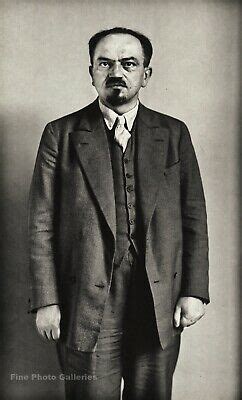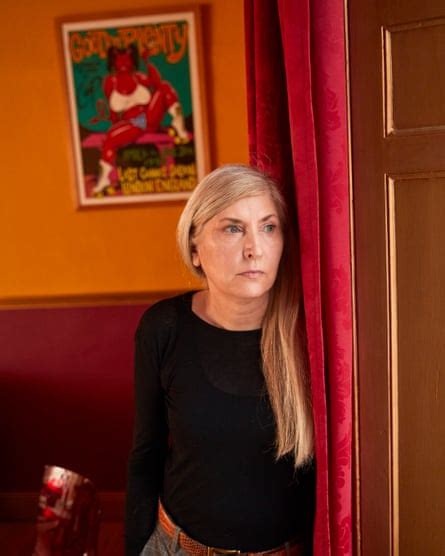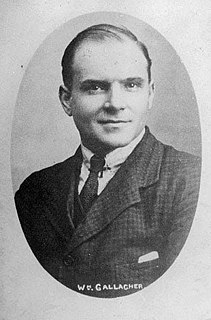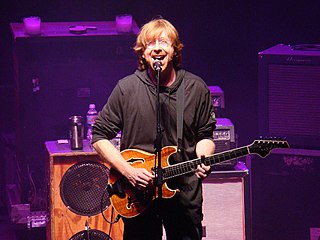A Quote by Paul Frolich
At 8 o'clock in the morning a dense throng of workers - almost 10,000 - assembled in the square, which the police had already occupied well ahead of time. Karl Liebknecht's voice then rang out: 'Down with the War! Down with the Government!' The police immediately rushed at him. For the first time since the beginning of the war open resistance to it had appeared on the streets of the capital. The ice was broken.
Related Quotes
There are times when I wouldn't rule violence out. I personally don't like violence at all. But it wasn't until we had the Trafalgar Square riots that the Poll Tax went out in Britain. When people take to the streets and fight the police, it's the one thing the government can't control. You can march round in circles for the rest of your life and they can ignore it, but once you start damaging property and fighting with the police, they can't. Even though they tar you with a brush and say you're a set of bastards, they have to actually tone down what they are doing.
Helen Crawfurd and the Women's Peace Crusade, made a march on the City Chambers, distributing an illegal leaflet in front of police and even to some of the police as well. The women forced their way into the building and the police had a really tough time trying to get them out. Word spread around that several of them had been arrested and this brought out new and very threatening demonstrations.
And this tenderness was not like That which a certain poet At the beginning of the century called true And, for some reason, quiet. No, not at all? It rang out, like the first waterfall, It crunched like the crust of bluish ice And it prayed with a swanlike voice, And it broke down right before our eyes.
The Security Council represents the situation from 1945 - you had the Allies who won the war who occupied that. The defeated guys - the Germans and Japan - were out. The occupied countries had no voice. That was fine in '45, but today, Germany rules Europe, frankly. They are driving Europe but have no voice.
There is a radical and unprecedented shift [in war] that is part of the general transformation of civilization. First, understand that the past 150 years of warfare are totally unprecedented in that we introduced a breathtakingly inefficient technology: guns. In the First World War, and this is not an exaggeration, it took 10,000 rounds of ammunition to kill one person. Any given shot had a one in 10,000 probability of ending someone's life.
The United States government was proud that, although perhaps 100,000 Iraqis had died in the Gulf War of 1991, there were only 48 American battle casualties. What it has concealed from the public is that 206,000 veterans of that war filed claims with the VA for injuries and illnesses. In the years since that war, 8,300 veterans have died, and 160,000 claims for disability have been recognized by the VA.
You look at the Russian side: They're defending their territory from the beginning. They move west to destroy the Nazis. And they take out the guts of the German war machine per Winston Churchill, who said that they won the war. From the beginning, we were hostile to the guys who had saved how many American lives by their repulsion of the Nazis? I think the Americans lost 400,000 in the whole war. And the Americans knew it at the time. They gave Joseph Stalin credit. He was the man of the year, cover of Life magazine in 1943; he was a hero.
The truth is that neither then nor at any former time, since I had attained my maturity in Age, Reading and reflection had I imbibed any general Prejudice against Kings, or in favour of them. It appeared to me then as it has done ever since, that there is a State of Society in which a Republican Government is the best, and in America the only one.
World War Two was a world war in space. It spread from Europe to Japan, to the Soviet Union, etc. World War Two was quite different from World War One which was geographically limited to Europe. But in the case of the Gulf War, we are dealing with a war which is extremely local in space, but global in time, since it is the first 'live' war.

































